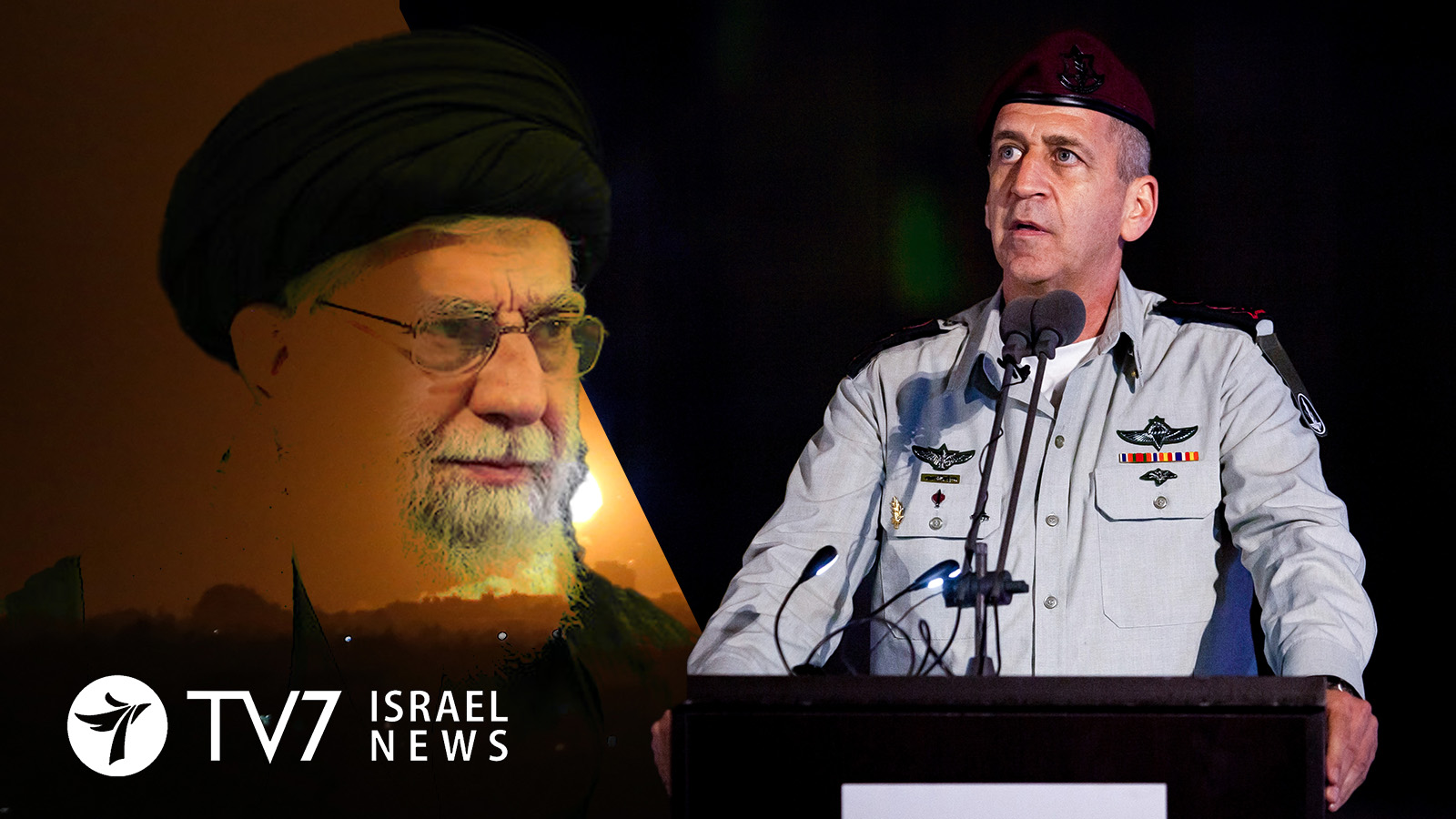A Kochavi Doctrine Aimed at Khamenei, Hezbollah and Hamas
By Amir Oren
In a 5000-word keynote address (in Hebrew; English would have added another 2000) in the annual strategic assessment event of Israel’s leading think tank, the INSS, the IDF’s senior officer had several messages for a respective number of audiences.
Lt.-Gen. Aviv Kochavi, Chief of General Staff for the last two years and presumably at mid-point in his term, had most media attention focused on the Iran part of his speech, as was expected and surely intended. But before he reached the headline-making announcement that he has ordered the IDF to prepare and exercise additional operational plans for action against Iran, he went through other interesting arguments.
His frustration was palpable, as the very successes of the IDF’s efforts to defend the country, overt and covert, are used against it when the government balks at funding military activities. Rather than get credit for Israel’s comfortable strategic situation, this success is taken for granted, and with it the expectation that there would be no failure, anywhere, anytime, regardless of the men, methods and materiel needed and lacking. Kochavi, who led the Gaza Division when it had a 99% success rate yet was breached in the 2006 attack which culminated in Gilad Shalit’s abduction, knows it too well.
In 2021, due to various reasons, none of Israel’s enemies, including Iran and Hezbollah, is right now planning a war or a major attack against the Jewish State, according to Kochavi. Israel has been diligently acting to degrade their war-making potential and to delay any hostile leader’s intention to wage war. However, wars can surprise all parties, coming as they are out of coincidence or miscalculation. Thus, Israel’s effort to sharpen its intelligence, striking power and lethality, so that wars will not drag out and exhaust civilian morale and economic resources.
Kochavi picks a fight with lawyers – local and international interpreters of the law of land warfare who would handcuff, first figuratively and then literally, commanders who put civilian populations across borders at risk. The old terms of moderation and proportionality have to be revised, Kochavi argues. In conventional wars, civilians happened to be stuck between and among the combatants. Care had to be taken not to hit those poor, innocent souls. But that is not the case when Hezbollah and Hamas, defined as “terror armies” by Kochavi, intentionally embed their missiles – aimed against Israeli civilians – in dense urban neighborhoods or rural houses. Their hosts and neighbors know full well the consequences. If Israel is too hesitant to act, employing the minimum force lawyers ask for, the Israeli population will pay the price. A new optimum has to be reached, a relativity scale measuring military advantage versus collateral damage. Additionally, there will be early warning to civilians during periods of tension leading to hostilities – pack up and leave, now, before the building next door, or yours, is hit because there is a launcher in the lobby.
Regarding Gaza, Kochavi spoke about his incentives and punishments, rooting for measures helping the Palestinians but insisting that the bottleneck is Hamas’ refusal to return two Israeli civilians held by it and the remains of two soldiers held since 2014. Conveniently, Kochavi ignored the counter-demand, to release Palestinian prisoners convicted of murder.
In a similar vein, Kochavi approached the Iran issue. In the first four years of the last decade, as Director of Military Intelligence, Kochavi was a moderate, joining other security chiefs in prefering a diplomatic solution to a strike with dubious justification and quickly expiring effectiveness. He wished for – who didn’t – a better sunset clause and the inclusion of Iran’s ballistic missile arsenal, but that was not the decision President Obama had to make. At some point, it was take it or leave it. The command decision was to take it. It was in Israel’s interest, too, though not to Prime Minister Binyamin Netanyahu’s view. Netanyahu decided to fight Obama rather than have a major behind the scenes input into what became the Joint Comprehensive Plan Of Action – the 2015 nuclear deal. Before it was put to the test, Trump came in and revoked it.
One can thus hardly claim that it failed, and that Iran benefited by it. Kochavi is a bit disingenuous when he makes such statements. Surely, he is aware of the facts and of the Biden Administration intention to refresh the talks with Iran, with a view to a new, improved and hopefully comprehensive indeed deal.
But as one of his more unfortunate predecessors as Chief of Staff, 1973’s Dado Elazar, said on war’s eve when indications were opaque and contradictory, had he been a military commentator, his opinion would be inclined towards a certain, optimistic, conclusion – but being in a position of authority and responsibility compels him to have a more pessimistic interpretation and to brace against an attack. Kochavi’s personal opinion regarding JCPOA 2.0 is irrelevant. He is Israel’s top military man whose aggressive words will be analyzed in Washington and Tehran, and are therefore tactical weapons in the battle over shaping Biden’s policy. Kochavi enlisted himself as a soldier in the war of words intended to avert the real war.
Regrettably, the forgotten word “peace” found no place in Kochavi’s 5000. It will have to await the establishment of a creative, stable Israeli government at long last willing to come out with a secure peace initiative of its own or at least embrace one hatched by Biden, when he gets to it. Kochavi, the good soldier that he is, and contrary to what might have been indicated by his INSS speech, will be there to support it.
